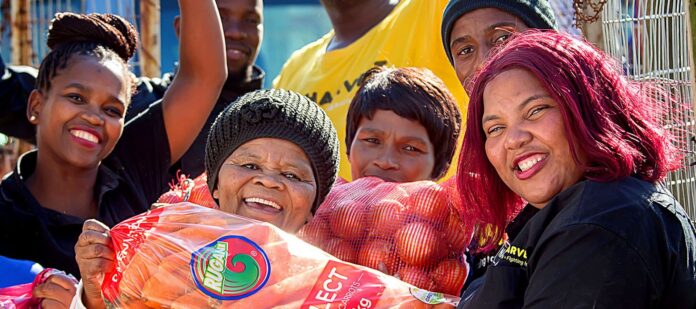With World Food Day gone and forgotten, one South African organisation has vowed to keep working to ensure citizens help one another fight hunger.
Food-rescue non-profit SA Harvest says South Africa produces enough food to feed every person. Yet millions remain hungry because of broken systems, poor logistics, and wasteful habits that divert edible food to landfills.
“We already have enough food to feed our nation,” says Ozzy Nel, CEO of SA Harvest.
“The challenge lies in the systems — how we move, store, and preserve food efficiently and equitably. The Greenhouse Programme demonstrates that food waste and hunger are two sides of the same solvable problem.”
Greenhouse programme
The organisation has launched its Greenhouse Programme, a model that turns food waste into food security. They do this by combining rescued produce, sustainable farming, and community training. The first phase, based in Lusikisiki in the Eastern Cape, is implemented with community partner iThemba Kuluntu and agritech specialist Fresh Life Produce. The initiative uses compost made from surplus food and hydroponic technology to grow nutrient-rich vegetables. While transferring agricultural and business skills to local residents.
Since its inception in 2019, SA Harvest has rescued 25 million kilograms of food. It has enabled 90 million meals, and prevented about 11 220 tonnes of CO₂-equivalent emissions, according to its audited 2024 report.
“Our data is generated directly from every delivery and proof-of-receipt across our logistics system,” explains spokesperson Cassandra Potgieter.
“Meal equivalents are calculated using a conservative 450 grams per meal conversion, aligned with FAO and WFP standards.”
New model for food production
Unlike traditional feeding schemes, SA Harvest operates as a logistics and technology company with a social purpose. It redistributes surplus food from farms, factories, and retailers to over 250 beneficiary organisations nationwide.
Its long-term goal goes beyond redistribution.
“When communities can grow, preserve, and redistribute food themselves, you begin to break the cycle of dependency and create true food sovereignty,” says Nel.
According to the latest United Nations hunger report, about one in every 11 people worldwide goes to bed hungry each night. The figure, released jointly by the Food and Agriculture Organisation (FAO), Unicef, and the World Health Organisation (WHO), reflects how hunger has remained stubbornly high for three consecutive years as wars, inflation, and climate disasters disrupt global food systems.
The report stresses that the world produces more than enough food to feed everyone. Yet millions still suffer because of inequality, waste, and inefficiency along the food chain.



